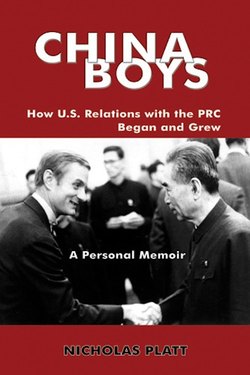Читать книгу CHINA BOYS: How U.S. Relations With the PRC Began and Grew. A Personal Memoir - Nicholas MD Platt - Страница 22
На сайте Литреса книга снята с продажи.
4 Watching China Newspapers Wrapped around Fish
ОглавлениеThe Mainland Section of the American Consulate General in Hong Kong was the China Watching headquarters of the world during the 1960s. Without diplomatic relations for more than ten years, all Americans could do was watch and listen. The three-story office building on Garden Road (still there, and larger) housed a staff of several hundred, many of whom were assigned to collecting and assembling data on the People’s Republic and guessing what it meant. Other sections did consular work, facilitated U.S. trade with Hong Kong and Macao, and took care of American citizens.
A newly minted language officer, I showed up for work at Garden Road in February 1964. As luck would have it, a shortage of analysts gave me a rare opportunity to choose the field I wanted to cover. China’s external affairs were hot. These were the peak years of Sino-Soviet polemics, month after month of propaganda broadsides exchanged between Moscow and Beijing, richly detailed and highly insulting barrages of invective between rival approaches to Communism (Khrushchev’s “revisionists” and Mao’s Stalinists). Dirty laundry about the relationship, collecting since the Soviets pulled their technical experts out of China in 1960, was now washed in the public media.
By comparison, domestic politics seemed cool and dry, but I was attracted by the opportunity to learn the names of China’s players and the system that they had built. I wanted to get the most out of Chinese language capability so arduously acquired over the past two years. My choice of internal affairs turned out to be momentous.
The process of watching China was, and still is, labor intensive. My colleagues and I read every newspaper we could get our hands on, including provincial publications smuggled into the colony wrapped around fish. Native linguists listened to every radio broadcast, from every province. Refugees were debriefed and their stories written up.
I was to sit each day at the end of a conveyor belt of such data, tasked to convert it into meaning. More than 90 percent of the material we analyzed was in the public domain. Clandestine sources and methods existed, to be sure, but their yield was limited. Our starting points were the prevalent slogans and the jargon of daily political discourse in the official media. Any deviation or repositioned language meant something. We felt like subscribers to a dull and repetitive orchestra that played the same pieces day after day. We listened for squeaks from the oboes or sour notes from the horns, changes of rhythm or volume, all potential indicators of debate or shifts in policy.
The reading skills I had acquired worked as a rough strainer. I could scan People’s Daily editorials quickly, moving smoothly through the set rhetoric. The formulations I could not understand right away signaled what was new and needed analysis. The Consulate General had a staff of translators I could consult, as well as a towering Manchu-language teacher named Tang Hung (also a fine painter), with whom I could discuss new terminology.
